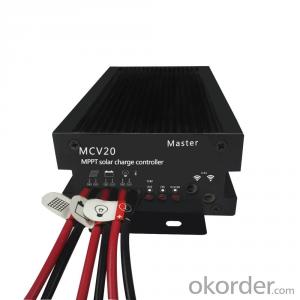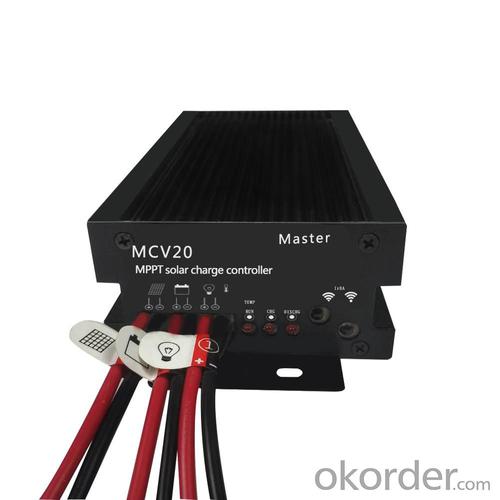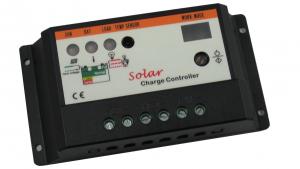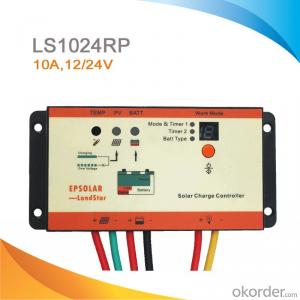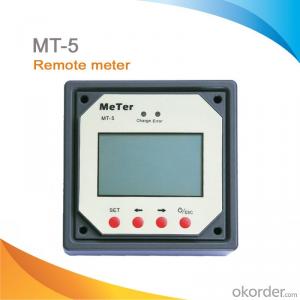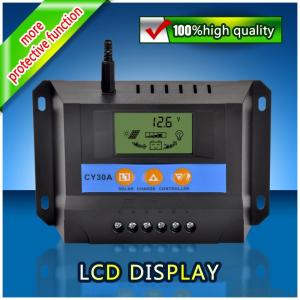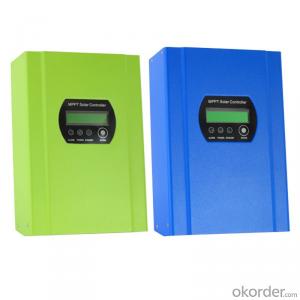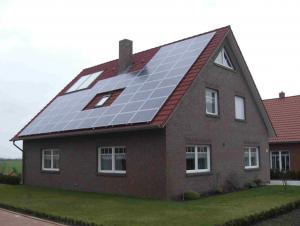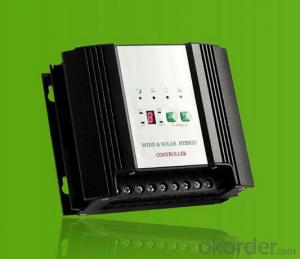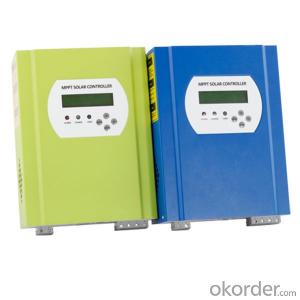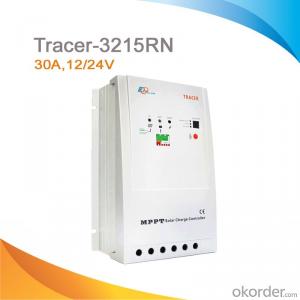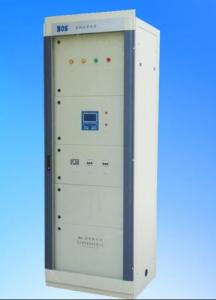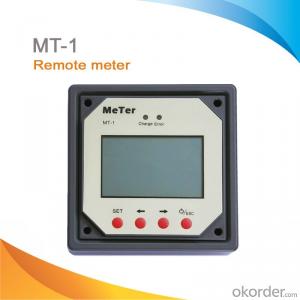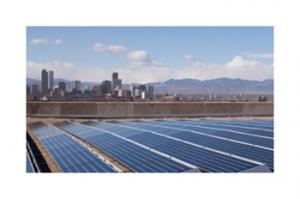30 Amp Rv Solar Panel Controllers - Intelligent 12V 24V Inverter Charger MPPT Solar Battery Charger Controller with Temperature Sensor
- Loading Port:
- China main port
- Payment Terms:
- TT OR LC
- Min Order Qty:
- 1 pc
- Supply Capability:
- 10000 pc/month
OKorder Service Pledge
OKorder Financial Service
You Might Also Like
1.Features :
1). Professional design to promote system reliability
2).High MPPT tracking efficiency up to ≥99.9% and high system efficiency up to 98%, Maximizes solar panel power output & reduces system costs.
3). Using industrial DSP digital technology, without any adjustable resistance, strong anti-interference ability, no aging and drift.
4).High LED driving and charging efficiency, significantly reduce the product temperature.
5).Three phase time charge battery, which contains MPPT charge, constant voltage charge and float charge.
6)Significantly extends the battery lifetime up to 50% base on intelligent temperature compensation charge and discharge management.
7)Intelligent energy management of battery ensures that the battery charge & discharge in shallow state which significantly extend the battery life.
8). User programmable for battery types, load control etc.
9).Infrared wireless communications, connecting with a handheld remote control for easy installation.
10). IP68 Waterproof without any button.
2. Technical parameters
| Item | Content | Model MCV20 | Unit |
| Battery Parameters | System voltage | 12/24V Auto recognition | - |
| Max. charge current | 20 | A | |
| Charge voltage range | 8~30 | V | |
| MPPT charge@25°C | ≤14.4(12V),≤28.8(24V),≤57.6(48V) | V | |
| Boost charge @25°C | 14.4(12V),28.8(24V),57.6(48V) | V | |
| Float charge @25°C | 13.8(12V),27.6(24V),55.2(48V) | V | |
| Deep discharge protection, Cut-off voltage@25°C | 10.8(12V),21.6(24V),44(48V) | V | |
| Reconnect voltage@25°C | 11.8(12V),23.6(24V),48(48V) | V | |
| Battery Temperature compensation | -4mV/°C/2V | - | |
| Solar panel parameters | Max panel voltage | 100 | V |
| Start voltage | ≤85 | V | |
| Max.panel power | 260(12V), 520(24V) | W | |
| MPPT track range | 15≤Vp≤75(12V), 30≤Vp≤75(24V) | V | |
| Output parameters | Output current | 20 | A |
| Overload, short circuit protection | 105%~150% Times the rated current 10 minutes 150%~200% Times the rated current 1 minutes ≥200% Times the rated current 20 millisecond | - | |
| Light control function | Yes | - | |
| Time control function | Yes | - | |
| System parameters | System grounding design | Co design | - |
| MPPT efficiency | ≥99.9% | - | |
| Max.charge efficiency | 98.50% | - | |
| Consumption in sleep mode | ≤0.5W | mA | |
| Communication | Infrared | - | |
| History Data | 1 | Year | |
| Operating temp. | -25~60 | °C | |
| Operating Humidity | 0~100% | RH |
3. Image

4. FAQ
Q:DO YOU HAVE ANY CERTIFICATION FOR YOUR PRODUCTS?
A:We have ISO9001:2015,CE、RoHS certifications for all of our products.
Q:DO YOU HAVE MOQ FOR PLACE ORDER?
A:Low MOQ,1pe for sample checking is availabl
- Q: Can a solar controller be used with solar panels that are connected to a solar lighting system?
- Using a solar controller with solar panels connected to a solar lighting system is possible. A solar controller, also referred to as a charge controller, is a vital component of a solar power system. It regulates the flow of electrical energy between the solar panels, battery storage, and other devices. Its purpose is to prevent the batteries from being overcharged or over-discharged, which can result in damage and a shorter lifespan. In the context of a solar lighting system, the solar controller plays a crucial role in managing the charging and discharging cycles of the batteries. These batteries store the energy generated by the solar panels during the day. The solar controller ensures that the batteries are optimally charged from the solar panels and that the stored energy is efficiently utilized for lighting purposes during nighttime. By utilizing a solar controller, the efficiency and lifespan of the solar lighting system can be maximized. It achieves this by safeguarding the batteries against excessive voltage and current fluctuations. Some solar controllers also offer additional features, such as load control. This feature allows users to manage the power consumption of the lighting system, ultimately extending the battery life. Therefore, it is highly recommended to incorporate a solar controller into a solar lighting system that is connected to solar panels. This ensures proper and efficient operation of the system.
- Q: Can a solar controller be used with solar panels that are partially covered?
- Yes, a solar controller can be used with partially covered solar panels. However, it is important to note that the efficiency of the solar panels will be reduced if they are partially covered, resulting in a lower overall power output. The solar controller will still regulate and control the charging process, but the amount of energy generated will be affected by the extent of the panel coverage.
- Q: How does a solar controller handle battery desulfation?
- A solar controller handles battery desulfation by periodically applying high voltage pulses to the battery, which helps break down and remove sulfation buildup on the battery plates. This process rejuvenates the battery and improves its overall performance and lifespan.
- Q: Can a solar controller be used with multiple batteries in parallel?
- Yes, a solar controller can be used with multiple batteries in parallel. The solar controller regulates the charging of the batteries and ensures that they are charged safely and efficiently. When multiple batteries are connected in parallel, the solar controller distributes the charging current evenly among them, ensuring that each battery receives the appropriate charge. This allows for increased capacity and storage capabilities, making it beneficial for solar power systems that require more energy storage.
- Q: What is the typical response time of a solar controller in adjusting the charging parameters?
- The response time of a solar controller in adjusting charging parameters can vary based on factors such as the controller model, design, and charging system complexity. However, modern solar controllers generally have quick response times, typically ranging from milliseconds to seconds. Solar controllers continuously monitor the solar panel's output and battery's charge level, making adjustments as needed. When the solar panel produces more power than the battery can handle, the controller must respond promptly to prevent overcharging and battery damage. Maintaining optimal charging parameters relies on the solar controller's ability to accurately detect changes in panel output and battery conditions. This ensures efficient and safe charging, maximizing the battery's lifespan and performance. Several factors influence the response time, including the controller's sensing and control circuitry, component quality, and overall design. Advanced controllers with improved technology and control algorithms tend to have faster response times. It's worth noting that manufacturers often provide specific response time information in the technical specifications of their solar controllers. For accurate and detailed information on the response time of a particular model, it is recommended to consult these specifications or contact the manufacturer directly.
- Q: Solar controller 10a, a represents what
- A, represents the current. Indicates the current that is allowed to pass during operation of the controller.
- Q: What is the role of a solar controller in preventing damage to the solar panels from electrical faults?
- The solar controller holds a crucial position in safeguarding the solar panels against electrical faults. Also referred to as a charge controller or regulator, it assumes the responsibility of managing and overseeing the electricity transmission from the solar panels to the batteries or electrical loads. One of the primary tasks of the solar controller is to shield the solar panels from overcharging. When the batteries have reached their full charge, surplus energy from the solar panels can result in overcharging, which in turn can deteriorate the batteries and truncate their lifespan. The solar controller diligently monitors the battery voltage and skillfully redirects the excess energy away from the batteries to prevent overcharging. Moreover, the solar controller performs an indispensable role in averting damage to the solar panels caused by electrical faults like short circuits or reverse current. In the event of such mishaps, the solar controller promptly identifies these faults and promptly interrupts the flow of electricity originating from the solar panels. By discontinuing the electrical connection, the solar controller effectively curtails further harm to the panels and guarantees the safety of the entire solar power system. Additionally, the solar controller also provides protection against battery over-discharging. Over-discharging poses a significant threat to the batteries and can lead to irreversible damage. In order to counteract this issue, the solar controller diligently monitors the battery voltage and disconnects the loads when the voltage reaches a certain low level. This proactive measure successfully prevents over-discharging and significantly extends the batteries' lifespan. In summary, the solar controller plays a pivotal role in preventing damage to the solar panels caused by electrical faults. Its duties encompass regulating and controlling the flow of electricity, safeguarding against overcharging, detecting and interrupting electrical faults, as well as preventing battery over-discharging. By effectively executing these functions, the solar controller ensures the optimal performance and longevity of the solar panels, batteries, and the entire solar power system.
- Q: Can a solar controller be used with deep-cycle batteries?
- Yes, a solar controller can be used with deep-cycle batteries. In fact, a solar controller is essential when using deep-cycle batteries with solar panels to regulate the charging process and prevent overcharging or damage to the batteries.
- Q: Can a solar controller be used in a residential solar system?
- Yes, a solar controller can be used in a residential solar system. A solar controller helps regulate the charging and discharging of batteries in a solar system, ensuring optimal performance and extending battery life. It is an essential component for managing the flow of electricity and maintaining the health of the system in a residential setting.
- Q: How does a solar controller handle variations in solar panel temperature?
- A solar controller handles variations in solar panel temperature by monitoring and regulating the voltage and current delivered by the panels. It adjusts the charging parameters such as voltage levels and charging rates based on the panel temperature to ensure optimal charging efficiency and prevent overcharging or undercharging of the connected batteries. Additionally, some advanced solar controllers may incorporate temperature sensors on the panels to directly measure the temperature and make precise adjustments accordingly.
Send your message to us
30 Amp Rv Solar Panel Controllers - Intelligent 12V 24V Inverter Charger MPPT Solar Battery Charger Controller with Temperature Sensor
- Loading Port:
- China main port
- Payment Terms:
- TT OR LC
- Min Order Qty:
- 1 pc
- Supply Capability:
- 10000 pc/month
OKorder Service Pledge
OKorder Financial Service
Similar products
Hot products
Hot Searches
Related keywords
